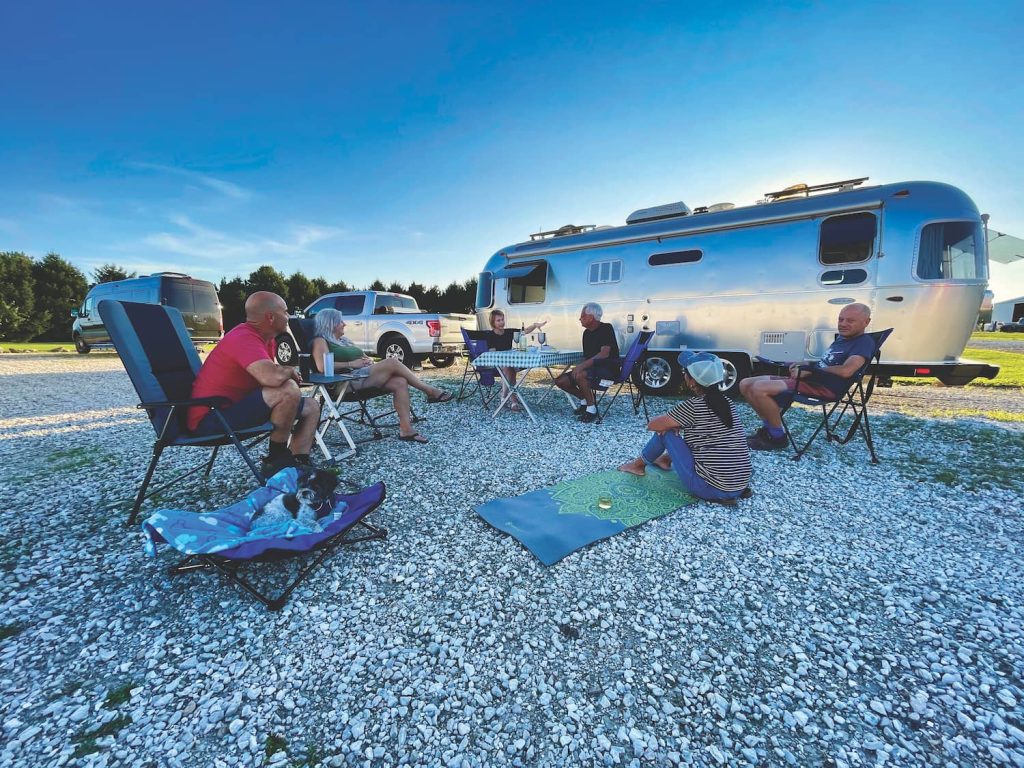The following is a report from UPI.com.
With millions of new adventurers on the road in the last few years, travelers have driven past traditional, crowded campgrounds, setting up at breweries, farms and festivals, and even going off the grid, also known as “boondocking,” for weeks at a time.
Since 2021, millions of Americans have bought new recreational vehicles, adventure vans and trailers. According to a 2023 Kampgrounds of America survey, 92 million American households identified as campers in 2022, compared to 78.8 million in 2019.
Some 80% of campers, survey results showed, wanted to have new experiences, including travel for natural events (40%) and food tourism and culinary experiences (36%).
Since 2016, Jim and Carmen Beaubeaux have been living full-time in their 30-foot Airstream trailer named “Beauty.” They’ve continually been traveling across 49 states while visiting the country’s natural wonders, attending music and cultural festivals and sampling regional cuisines.
Jim Beaubeaux told UPI that people like him are simply looking for “fresh air in a quiet, spacious, scenic area – a place to relax, watch a sunset, have a bite to eat, take a walk, enjoy some stargazing and go to bed – no hook-ups or amenities necessary.”
He estimates he and his wife spent $20,000 upgrading the trailer with new batteries, furniture, inverters, flooring and appliances to make it feel and function like home.
Carmen Beaubeaux said the couple rarely had to book reservations ahead of time before March 2020, but now it’s a race to reserve RV sites, especially during peak season in the spring and summer. So, the couple now hits less-traveled locations.
When COVID-19 hit in March 2020, they ventured out in the middle of the Anza-Borrego Desert in California for weeks. Over the past couple of years, Carmen said, they’ve enjoyed “boondocking” in places like Big Bend, Texas, Martinez Lake and Sedona in Arizona and the Tetons of Wyoming, one of Jim Beaubeaux’s favorite spots.
“We didn’t like Yellowstone, too many cars,” Jim Beaubeaux said. “When we were in Winnemucca, Nev., the closest RV boondocking was almost a half a mile away. We have lithium batteries, 59 gallons of fresh water, solar panels and a generator if the sun doesn’t behave. We can be out there for weeks on our own.”
When they’re not “boondocking,” the Beaubeauxs strayed away from national parks on the weekends and leaned on friends across the country, travel organizations like the Airstream Club International, and sites like Harvest Hosts, an RV membership collective of more than 5,100 farms, wineries, breweries and attractions to offer overnight hosting options.
On their blog, Living in Beauty, the Beaubeauxs offer tips, camping resources and travel maps, in addition to cataloging their experiment “forever camping.”
While the pandemic may have brought an influx of people to RV living, better batteries, stronger inverter technology and more efficient energy systems have allowed them to move beyond the traditional campground.
Read the full report from UPI.com here.
